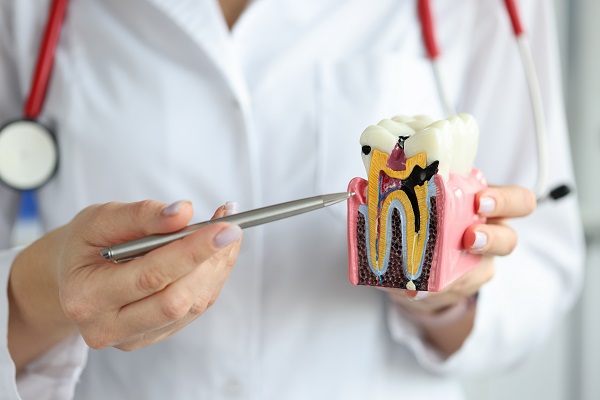What Are the Best Methods to Keep Cavities From Forming?

Cavities are one of the most common reasons that people seek dental treatment. These small holes develop on teeth surfaces due to acids in the mouth eating away at them. Bacteria in the mouth consume sugars and excrete these acids.
The earliest stage of tooth decay can be reversed if a dentist detects it early on. It is known as the demineralization stage, and it can be reversed with a fluoride treatment.
The latter stages of tooth decay require treatments like fillings, composite bonding, or crowns to prevent the decay from destroying the tooth. An untreated cavity can also lead to an infection. That requires a root canal from a general dentist. They will clean out the contents of the pulp chamber and apply medication to the area.
Best ways to prevent cavities
Cavities are easy to avoid if patients take good care of their mouth and avoid foods and beverages that promote tooth decay. Here are a few ways to keep the teeth decay-free.
1. Brush twice daily
Brushing the teeth twice a day helps remove the things that lead to decay. Bacteria in the mouth form plaque, the sticky, transparent film that forms over teeth during the day. Plaque contains bacteria and their acids, so it gradually eats away at teeth surfaces.
Fortunately, plaque can be removed by brushing the teeth regularly. Brushing after every meal provides maximum protection, but many people have difficulty keeping up with that oral hygiene schedule. Brushing twice a day also provides adequate protection, especially right before bed. Saliva production is decreased during sleep, which makes teeth more vulnerable to tooth decay. Also, food particles and the acids produced by bacteria have built up all day, so it is best to get them off the teeth before going to bed.
When left on teeth for a few days, plaque hardens into tartar, which cannot be removed by brushing. Tartar contains acids made by oral bacteria and can only be removed by a dentist during teeth cleaning. Removing it requires using a dental tool called a scaler, and it requires training and experience to perform the procedure safely.
2. Floss daily
Flossing helps get rid of plaque in the spaces between teeth. These areas are too narrow to reach with the bristles of a toothbrush. Aim to floss once a day before or after brushing teeth at night.
3. Limit exposure to sugar
Sugar is the number-one thing that people who are concerned with cavities should avoid. Bacteria in the mouth love it, and it gives them the fuel that they need to make the acids that damage teeth. Sugary drinks or snacks should be quickly consumed and the mouth rinsed with water afterward.
We can help prevent cavities
Take good care of your teeth, and cavities will not be something that you have to spend much time dealing with. So, give us a call or visit our McKinney clinic for more tips on how to prevent tooth decay and for cavity treatment.
Request an appointment here: https://www.yourdowntownmckinneydentist.com or call Sam Patel DDS, PA at (972) 638-5848 for an appointment in our McKinney office.
Check out what others are saying about our dental services on Yelp: General Dentist in McKinney, TX.
Related Posts
Dentistry encompasses a broad range of skills and areas of focus designed to maintain or improve oral health. General dentists are the most commonly thought of practitioners, and rightfully so, with many seeing them at least twice a year. However, there are a host of dental specialists that individuals may need to encounter at some…
Wondering whether it is OK to skip oral hygiene from time to time? Read on to learn from a general dentist why that is not a good idea. All general dentists preach the importance of good oral hygiene between dental cleaning visits for a reason. The long-term focus for general dentists is on helping their…
General dentistry aims to keep your teeth and gums healthy by educating you about proper oral hygiene and performing preventative treatments that protect against issues like gum disease and tooth decay. The American Dental Association recommends going to the dentist at least two times per year. These visits are used to evaluate the condition of…
General dentistry includes preventing and treating issues like cavities, which are tiny holes that form on teeth surfaces that have been damaged by the acids made by oral bacteria. Also known as caries, these openings continuously expand until they are treated or cause a total loss of the teeth.Tooth decay is the top reason that…
